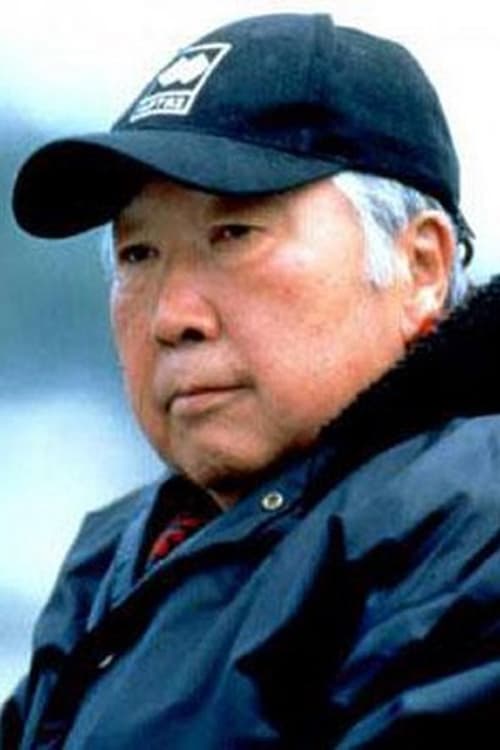
Director
Filmmakers from all over the world provide short films – each of which is eleven minutes, nine seconds, and one frame of film in length – that offer differing perspectives on the 9/11 terrorist attacks.
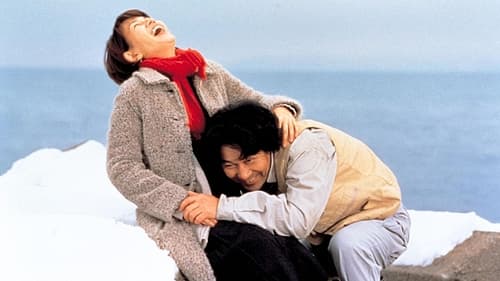
Screenplay
A down-and-out businessman travels to a seaside town, where he meets a woman with unusual sexual powers.

Director
A down-and-out businessman travels to a seaside town, where he meets a woman with unusual sexual powers.
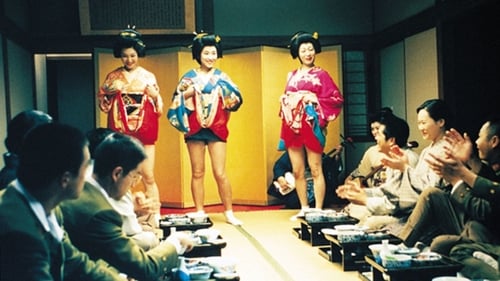
Writer
Na véspera da rendição japonesa, em 1945, Akagi, o médico local de uma povoação costeira de uma das ilhas japonesas, decide tomar uma posição firme para preservar a sua integridade profissional. Está preocupado com o crescente número de casos de hepatite e junta-se aos seus antigos companheiros, um monge dissoluto e um cirurgião niilista viciado em morfina, todos à margem da sociedade militar japonesa. Sonoko, uma rapariga selvagem, adere ao grupo como enfermeira. Tornou-se responsável pelos irmãos desde a morte dos pais e, por vezes, ganha dinheiro como prostituta. Mas ao trabalhar com Akagi o seu destino muda: apaixona-se pelo estranho médico e quer passar com ele o resto da sua vida.

Director
Na véspera da rendição japonesa, em 1945, Akagi, o médico local de uma povoação costeira de uma das ilhas japonesas, decide tomar uma posição firme para preservar a sua integridade profissional. Está preocupado com o crescente número de casos de hepatite e junta-se aos seus antigos companheiros, um monge dissoluto e um cirurgião niilista viciado em morfina, todos à margem da sociedade militar japonesa. Sonoko, uma rapariga selvagem, adere ao grupo como enfermeira. Tornou-se responsável pelos irmãos desde a morte dos pais e, por vezes, ganha dinheiro como prostituta. Mas ao trabalhar com Akagi o seu destino muda: apaixona-se pelo estranho médico e quer passar com ele o resto da sua vida.
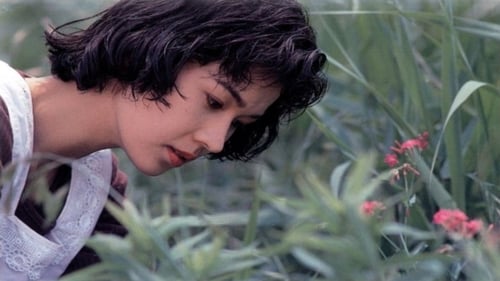
Writer
Takuro, depois de passar oito anos na prisão por ter assassinado a esposa, começa uma nova vida numa pequena cidade, no subúrbio de Tóquio, trabalhando como barbeiro. Sua grande companheira é uma enguia, que ele manteve em sua cela durante o período em que esteve preso.Aos poucos, ele começa a se abrir para o mundo, tornando-se amigo dos moradores locais, que frequentam sua loja. Sua vida, no entanto, muda radicalmente quando ele salva Keiko, uma jovem mulher que tenta se jogar no rio próximo à sua barbearia.Keiko, que também tenta esquecer seu sofrimento, começa a trabalhar na loja de Takuro. Os dois se sentem atraídos um pelo outro, mas alguns incidentes ocorrem, colocando-os de volta ao seu passado.

Director
Takuro, depois de passar oito anos na prisão por ter assassinado a esposa, começa uma nova vida numa pequena cidade, no subúrbio de Tóquio, trabalhando como barbeiro. Sua grande companheira é uma enguia, que ele manteve em sua cela durante o período em que esteve preso.Aos poucos, ele começa a se abrir para o mundo, tornando-se amigo dos moradores locais, que frequentam sua loja. Sua vida, no entanto, muda radicalmente quando ele salva Keiko, uma jovem mulher que tenta se jogar no rio próximo à sua barbearia.Keiko, que também tenta esquecer seu sofrimento, começa a trabalhar na loja de Takuro. Os dois se sentem atraídos um pelo outro, mas alguns incidentes ocorrem, colocando-os de volta ao seu passado.

Himself
Documentary about Japanese film director Shohei Imamura.

Executive Producer
Shigematsu Shizuma lives with his senile mother, his wife Shigeko, and his niece Yasuko in a village near Fukuyama. He, his wife, his niece and his close friends in the village were present at the atomic bombing of Hiroshima. The Shizumas look for prospective husbands for Yasuko, but find that the families withdraw on finding out she was at Hiroshima.

Writer
Shigematsu Shizuma lives with his senile mother, his wife Shigeko, and his niece Yasuko in a village near Fukuyama. He, his wife, his niece and his close friends in the village were present at the atomic bombing of Hiroshima. The Shizumas look for prospective husbands for Yasuko, but find that the families withdraw on finding out she was at Hiroshima.

Director
Shigematsu Shizuma lives with his senile mother, his wife Shigeko, and his niece Yasuko in a village near Fukuyama. He, his wife, his niece and his close friends in the village were present at the atomic bombing of Hiroshima. The Shizumas look for prospective husbands for Yasuko, but find that the families withdraw on finding out she was at Hiroshima.
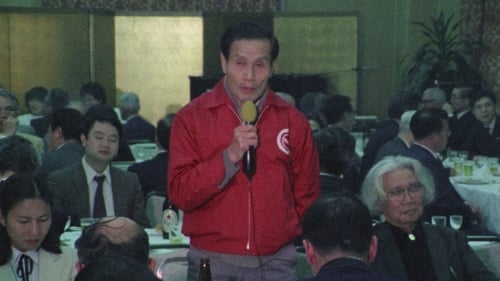
Associate Producer
Kenzo Okuzaki, a 62-year-old veteran of the New Guinea campaign in World War II, sets out to conduct interviews with survivors and relatives to find the truth behind atrocities committed while the Japanese garrison was surrounded, in particular the unexplained killing of two Japanese privates in his unit.
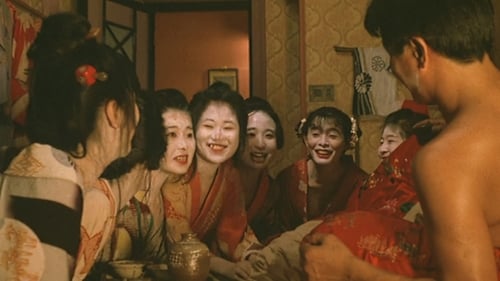
Writer
At the time between the World Wars, Japan is involved in empire-building throughout East and Southeast Asia. After a brief career as a low-level military adventurer, Iheiji sets up chains of brothels throughout Asia. As Japan's power in the region grows, so does Iheiji's prosperity and patriotism.

Director
At the time between the World Wars, Japan is involved in empire-building throughout East and Southeast Asia. After a brief career as a low-level military adventurer, Iheiji sets up chains of brothels throughout Asia. As Japan's power in the region grows, so does Iheiji's prosperity and patriotism.

Producer
2 almost inseparable friends. The talented painter recognized by all decided to leave the town where they live and become an artist and the shy poet who only sees his future in his mother's business.

Self
An extremely lovely tribute to Ozu, on the 20th anniversary of his death. It uses a combination of footage from vintage films and new material (both interviews and Ozu-related locations) shot by Ozu's long-time camera-man (who came out of retirement to work on this). Surprisingly (or perhaps not), it focuses less on Ozu's accomplishments as a film-maker than on his impact on the lives of the people he worked with..
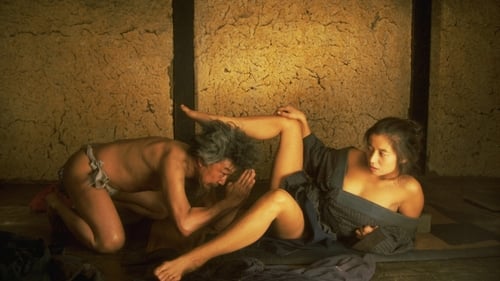
Screenplay
Em uma pequena aldeia em um vale, todo mundo que chega aos 70 anos deve deixar a aldeia e ir para o topo de uma determinada montanha para morrer. Se alguém recusasse, iria desonrar sua família. O velho Orin tem 69 anos. Neste inverno, é a vez dela ir para a montanha. Mas primeiro ela deve se certificar de que seu filho mais velho, Tatsuhei, encontre uma esposa.

Director
Em uma pequena aldeia em um vale, todo mundo que chega aos 70 anos deve deixar a aldeia e ir para o topo de uma determinada montanha para morrer. Se alguém recusasse, iria desonrar sua família. O velho Orin tem 69 anos. Neste inverno, é a vez dela ir para a montanha. Mas primeiro ela deve se certificar de que seu filho mais velho, Tatsuhei, encontre uma esposa.

Screenplay
The film depicts carnivalesque atmosphere summed up by the cry "Ei ja nai ka" ("Why not?") in Japan in 1867 and 1868 in the days leading to the Meiji Restoration. It examines the effects of the political and social upheaval of the time, and culminates in a revelrous march on the Tokyo Imperial Palace, which turns into a massacre. Characteristically, Imamura focuses not on the leaders of the country, but on characters in the lower classes and on the fringes of society.

Producer
The film depicts carnivalesque atmosphere summed up by the cry "Ei ja nai ka" ("Why not?") in Japan in 1867 and 1868 in the days leading to the Meiji Restoration. It examines the effects of the political and social upheaval of the time, and culminates in a revelrous march on the Tokyo Imperial Palace, which turns into a massacre. Characteristically, Imamura focuses not on the leaders of the country, but on characters in the lower classes and on the fringes of society.

Director
The film depicts carnivalesque atmosphere summed up by the cry "Ei ja nai ka" ("Why not?") in Japan in 1867 and 1868 in the days leading to the Meiji Restoration. It examines the effects of the political and social upheaval of the time, and culminates in a revelrous march on the Tokyo Imperial Palace, which turns into a massacre. Characteristically, Imamura focuses not on the leaders of the country, but on characters in the lower classes and on the fringes of society.

Director
Com base em registros políciais e no premiado livro escrito por Ryuzo Saki, este filme relata a terrível onda de crimes de Iwao Enokizu, um homem vazio sem "kokoro", que significa em japonês, tanto "eu" como "coração". O funcionário insatisfeito, Enokizu mata várias pessos, sem qualquer razão e consegue escapar da polícia, mesmo com seu rosto celebrizado em todo país. Mas, seu pai e sua esposa, que sabem do seu segredo, tentam viver tranquilos. Depois de realizar vários documentários, insatisfeito com as limitações da forma narrativa, Shohei Imamura criou este filme. Aparentemente, um drama policial simples, Minha Vingança incorpora vários toques surrealistas, incluindo um final em que a "lei da gravidade" é esquecida.
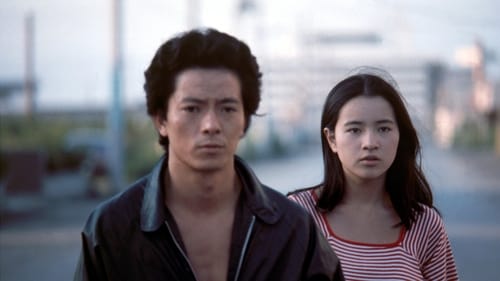
Producer
Though his parents help him run the family business, Jun still feels persecuted by their love; when they bar him from meeting with his girlfriend, tensions increase.

Himself
Karayuki-san, the Making of a Prostitute is a 1975 Japanese film by director Shohei Imamura. It is a documentary on one of the Japanese "karayuki-san," who were women that were taken from their homes in Japan and used as prostitutes in the post-war period. Many of these women were told that they were doing this to support their families because of the extreme poverty that the war left much of Japan to live in. Imamura focuses on a particular such woman who was sent to Malaysia and never returned to Japan. Joan Mellen, in The Waves at Genji's Door, called this film, "Perhaps the most brilliant and feeling of Imamura's fine documentaries."

Director
Karayuki-san, the Making of a Prostitute is a 1975 Japanese film by director Shohei Imamura. It is a documentary on one of the Japanese "karayuki-san," who were women that were taken from their homes in Japan and used as prostitutes in the post-war period. Many of these women were told that they were doing this to support their families because of the extreme poverty that the war left much of Japan to live in. Imamura focuses on a particular such woman who was sent to Malaysia and never returned to Japan. Joan Mellen, in The Waves at Genji's Door, called this film, "Perhaps the most brilliant and feeling of Imamura's fine documentaries."

Himself
“In Search of Unreturned Soldiers was about former soldiers of the Japanese army who chose not to return to Japan after the war. I found several of them who had remained in Thailand. Two years later, I invited one of them to make his first return visit to Japan and documented it in Outlaw-Matsu Returns Home. During the filming, my subject Fujita asked me to buy him a cleaver so that he could kill his ‘vicious brother.’ I was shocked, and asked him to wait a day so that I could plan how to film the scene. By the next morning, to my relief, Fujita had calmed down and changed his mind about killing his brother. But I couldn’t have had a sharper insight into the ethical questions provoked by this kind of documentary filmmaking.” —Shôhei Imamura

Director
“In Search of Unreturned Soldiers was about former soldiers of the Japanese army who chose not to return to Japan after the war. I found several of them who had remained in Thailand. Two years later, I invited one of them to make his first return visit to Japan and documented it in Outlaw-Matsu Returns Home. During the filming, my subject Fujita asked me to buy him a cleaver so that he could kill his ‘vicious brother.’ I was shocked, and asked him to wait a day so that I could plan how to film the scene. By the next morning, to my relief, Fujita had calmed down and changed his mind about killing his brother. But I couldn’t have had a sharper insight into the ethical questions provoked by this kind of documentary filmmaking.” —Shôhei Imamura

Director
Shohei Imamura’s short documentary.

Self
Shohei Imamura’s short documentary.
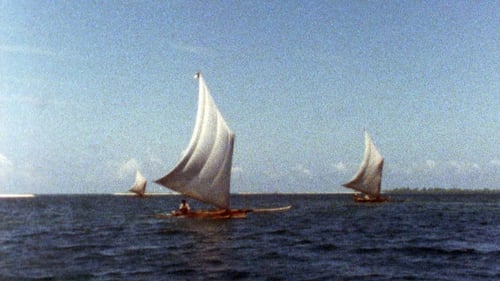
Writer
By going to the Philippines, Imamura comes to meet people living in an extreme poverty. He discovers very quickly that some communities are under the control of cruel & armed pirates. Imamura will come to meet those men in order to understand their position.

Himself
By going to the Philippines, Imamura comes to meet people living in an extreme poverty. He discovers very quickly that some communities are under the control of cruel & armed pirates. Imamura will come to meet those men in order to understand their position.

Director
By going to the Philippines, Imamura comes to meet people living in an extreme poverty. He discovers very quickly that some communities are under the control of cruel & armed pirates. Imamura will come to meet those men in order to understand their position.

Director
In Thailand, three Japanese soldiers, left in the jungle more than a quarter of a century after their country's defeat, come together to discuss what their life was like during and after the war.
Part two of Imamura's quest for Japanese soldiers who stayed behind after the war.
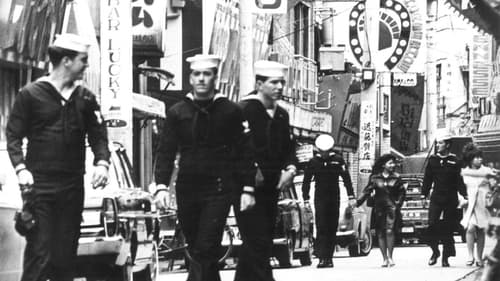
Writer
A documentary film showcasing life in postwar Japan as seen through the eyes of a bar hostess.

Director
A documentary film showcasing life in postwar Japan as seen through the eyes of a bar hostess.

Director
Famed filmmaker tracks down former Japanese soldiers in Malaysia.

Writer
Um engenheiro de Tóquio chega a uma ilha tropical assolada pela seca para perfurar um poço para abastecer uma usina de açúcar próxima. Ele conhece a família Futori, odiada pelos habitantes locais por quebrar os costumes religiosos.

Director
Um engenheiro de Tóquio chega a uma ilha tropical assolada pela seca para perfurar um poço para abastecer uma usina de açúcar próxima. Ele conhece a família Futori, odiada pelos habitantes locais por quebrar os costumes religiosos.

Producer
Rokurō starts a part-time job on a fishing boat, but the ship has an engine failure in the middle of the Pacific Ocean.

Writer
Rokurō starts a part-time job on a fishing boat, but the ship has an engine failure in the middle of the Pacific Ocean.

Writer
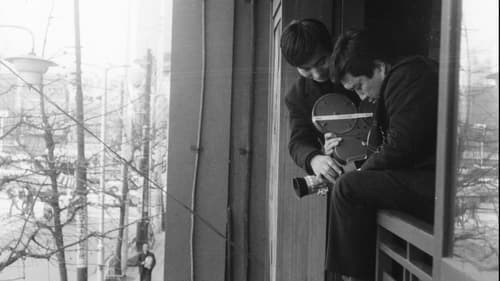
Producer
A Man Vanishes examines the concept of Johatsu, tackling the phenomenon of people missing in Japan over the years. It picks one such person from the list, someone who had seemed to disappear from the face of the earth due to embezzlement from his company, and the filmmakers begin an investigative documentary into the reasons behind and attempt at tracking him down.

Self
A Man Vanishes examines the concept of Johatsu, tackling the phenomenon of people missing in Japan over the years. It picks one such person from the list, someone who had seemed to disappear from the face of the earth due to embezzlement from his company, and the filmmakers begin an investigative documentary into the reasons behind and attempt at tracking him down.

Director
A Man Vanishes examines the concept of Johatsu, tackling the phenomenon of people missing in Japan over the years. It picks one such person from the list, someone who had seemed to disappear from the face of the earth due to embezzlement from his company, and the filmmakers begin an investigative documentary into the reasons behind and attempt at tracking him down.

Screenplay
Subu makes pornographic films. He sees nothing wrong with it. They are an aid to a repressed society, and he uses the money to support his landlady, Haru, and her family. From time to time, Haru shares her bed with Subu, though she believes her dead husband, reincarnated as a carp, disapproves. Director Shohei Imamura has always delighted in the kinky exploits of lowlifes, and in this 1966 classic, he finds subversive humor in the bizarre dynamics of Haru, her Oedipal son, and her daughter, the true object of her pornographer-boyfriend’s obsession. Imamura’s comic treatment of such taboos as voyeurism and incest sparked controversy when the film was released, but The Pornographers has outlasted its critics, and now seems frankly ahead of its time.

Producer
Subu makes pornographic films. He sees nothing wrong with it. They are an aid to a repressed society, and he uses the money to support his landlady, Haru, and her family. From time to time, Haru shares her bed with Subu, though she believes her dead husband, reincarnated as a carp, disapproves. Director Shohei Imamura has always delighted in the kinky exploits of lowlifes, and in this 1966 classic, he finds subversive humor in the bizarre dynamics of Haru, her Oedipal son, and her daughter, the true object of her pornographer-boyfriend’s obsession. Imamura’s comic treatment of such taboos as voyeurism and incest sparked controversy when the film was released, but The Pornographers has outlasted its critics, and now seems frankly ahead of its time.

Director
Subu makes pornographic films. He sees nothing wrong with it. They are an aid to a repressed society, and he uses the money to support his landlady, Haru, and her family. From time to time, Haru shares her bed with Subu, though she believes her dead husband, reincarnated as a carp, disapproves. Director Shohei Imamura has always delighted in the kinky exploits of lowlifes, and in this 1966 classic, he finds subversive humor in the bizarre dynamics of Haru, her Oedipal son, and her daughter, the true object of her pornographer-boyfriend’s obsession. Imamura’s comic treatment of such taboos as voyeurism and incest sparked controversy when the film was released, but The Pornographers has outlasted its critics, and now seems frankly ahead of its time.
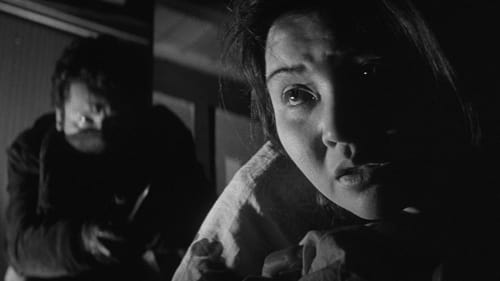
Screenplay
Sadako, cursed by generations before her and neglected by her common-law husband, falls prey to a brutal home intruder. But rather than become a victim, she forges a path to her own awakening.

Director
Sadako, cursed by generations before her and neglected by her common-law husband, falls prey to a brutal home intruder. But rather than become a victim, she forges a path to her own awakening.
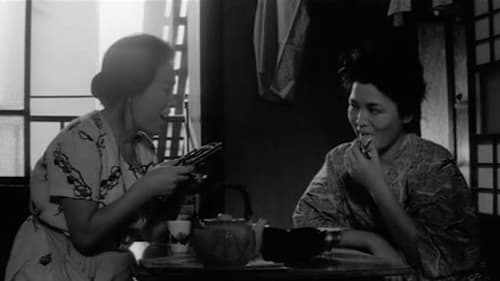
Writer
É entre os camponeses, os miseráveis, os gângsteres e as prostitutas que Imamura encontra terreno fértil. A Mulher Inseto (Nippon Konchuki, 1963), uma de suas obras-primas do período, conta a história de uma camponesa que, tal como um inseto, faz sua escalada da sobrevivência. Tendo atravessado, desde a adolescência, a violência sexual e o incesto, sua mudança para a cidade grande a conduz diretamente à prostituição e afinal ao controle de um bordel, onde passa a praticar toda sorte de atos vis, dos quais antes fora vítima. O tratamento do personagem como uma verdadeira heroína é absolutamente novo no até então moralista cinema japonês. E as tomadas de estilo documental, nas quais freqüentemente o personagem principal não passa de uma cabeça perdida na multidão das ruas da cidade, propõem exatamente o oposto das imagens de estúdio da Shochiku, sempre bem compostas e nítidas.

Director
É entre os camponeses, os miseráveis, os gângsteres e as prostitutas que Imamura encontra terreno fértil. A Mulher Inseto (Nippon Konchuki, 1963), uma de suas obras-primas do período, conta a história de uma camponesa que, tal como um inseto, faz sua escalada da sobrevivência. Tendo atravessado, desde a adolescência, a violência sexual e o incesto, sua mudança para a cidade grande a conduz diretamente à prostituição e afinal ao controle de um bordel, onde passa a praticar toda sorte de atos vis, dos quais antes fora vítima. O tratamento do personagem como uma verdadeira heroína é absolutamente novo no até então moralista cinema japonês. E as tomadas de estilo documental, nas quais freqüentemente o personagem principal não passa de uma cabeça perdida na multidão das ruas da cidade, propõem exatamente o oposto das imagens de estúdio da Shochiku, sempre bem compostas e nítidas.

Screenplay
One summer day, the chief monk of the Hojuin Temple dies. Harumichi rushes back to town hearing about his brother's death and requests for a grand funeral. He had been unwilling to take over the family business and had chosen a life as a middle school teacher far away from home, but considering the circumstances, he changes his mind. As the new chief of Hojuin, Harumichi scrambles around day after day for donations. He has kept strictly to the straight and narrow, until he passes a bicycle race track where the sounds of cheering fans induce him into a new way of life...

Screenplay
Tajima Yumi, in grade school, is overjoyed when her father says they are moving to an apartment in a big city. But the beautiful home she had imagined is in a slum area called Samurai Village, a little settlement, where people live from hand to mouth. To make things worse, a group of vagrants descends on the already crowded ragpickers' village. The sight depresses and saddens little Yumi, but when her father gives up drinking, it makes up for everything in her eyes, and when he runs past liquor shops to avoid temptation, Yumi's laughter rings out merrily again. A unique social drama depicting the growth of a new generation that confronts the world of adults full of vanity in the image of a girl living in poverty.

Screenplay
Set in Kawaguchi in the early 60s, this simple story chronicles the lives of foundry families and one girl's dreams of higher education.
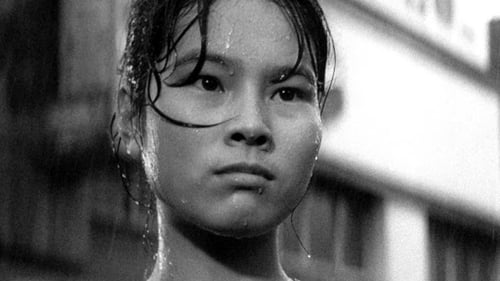
Director
Um jovem opta por trabalhar como cuidador de porcos da Yakuza ao invés de arranjar um emprego normal. Contrariado pela namorada e acreditando ser apenas um trabalho como outro qualquer, acaba sendo jogado em meio ao mundo do crime.

Screenplay
The film tells the story of four orphans living in an impoverished mining town. An adaptation of a best-selling book based on the diary of a ten-year-old zainichi (ethnic Korean Japanese) girl, it was one of the first films to deal with the subject of zainichi identity and struggles in Japan.

Director
The film tells the story of four orphans living in an impoverished mining town. An adaptation of a best-selling book based on the diary of a ten-year-old zainichi (ethnic Korean Japanese) girl, it was one of the first films to deal with the subject of zainichi identity and struggles in Japan.

Screenplay
Set in post-war Japan, a group of five, four men and one woman, gathers in the basement of a butcher shop to dig up a cache of morphine buried during the war. A grimly humorous tale of twisted relationships as one by one each of the group is eliminated.

Director
Set in post-war Japan, a group of five, four men and one woman, gathers in the basement of a butcher shop to dig up a cache of morphine buried during the war. A grimly humorous tale of twisted relationships as one by one each of the group is eliminated.

Screenplay
This short comedy concerns the extramarital affair of a drugstore owner. It is based on a popular song by the star of the film, Frank Nagai.

Director
This short comedy concerns the extramarital affair of a drugstore owner. It is based on a popular song by the star of the film, Frank Nagai.

Director
A rumbunctious and ribald tale of a troupe of travelling actors who alternate highlights of kabuki theatre with strip shows.
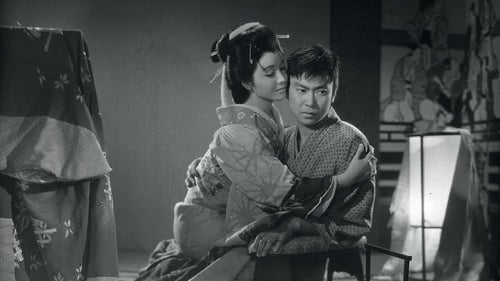
Screenplay
Saheji, um rebelde engenhoso, é obrigado a permanecer em um bordel para pagar sua dívida. No início, ele é tratado como um hóspede indesejável que nunca vai embora, mas logo se envolve com os hóspedes, anfitriões, criados e garotas de alterne – resolvendo os problemas de todos com sua inteligência.

Assistant Director
Saheji, um rebelde engenhoso, é obrigado a permanecer em um bordel para pagar sua dívida. No início, ele é tratado como um hóspede indesejável que nunca vai embora, mas logo se envolve com os hóspedes, anfitriões, criados e garotas de alterne – resolvendo os problemas de todos com sua inteligência.

Assistant Director
Reiko vive um casamento abusivo com um homem 23 anos mais velho. Um dia, ela conhece um jovem empresário, que é o maior concorrente de negócios de seu marido, e se apaixona por ele. Enquanto isso, a viúva Mayumi começa uma relação com Shimotsuma, um amigo de seu falecido marido.

Second Assistant Director
Com um riquixá e praticamente sem bagagem, um homem volta para casa das Filipinas. A Era Meiji acabava e muita coisa havia mudado. Depois de conhecer sua filha pela primeira vez, já com quatro anos de idade, ele tenta desesperadamente recuperar o tempo perdido com a família.
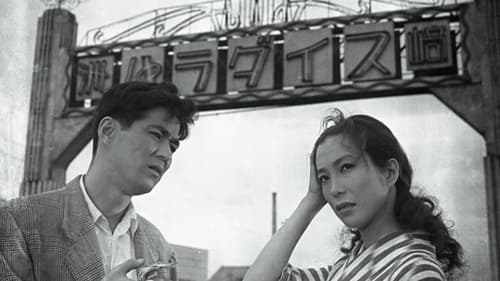
Assistant Director
Um casal de jovens desempregados, Yoshiji e Tsutae, acaba nos subúrbios da zona de prostituição Suzaki, em Tóquio. Tsutae consegue um trabalho servindo saquê para homens em um pequeno bar, enquanto Yoshiji é contratado como entregador em uma loja próxima de noodles.

Assistant Director
Haruki Murakami é um homem de família de sucesso e chefe de uma empresa de câmeras. Sem o seu conhecimento, seu filho arrogante alterna entre uma amante e a cantora da boate local. Quando a filha deficiente de Murakami faz amizade com a amante, o caso amoroso abala toda a família.

Writer
Haruki Murakami é um homem de família de sucesso e chefe de uma empresa de câmeras. Sem o seu conhecimento, seu filho arrogante alterna entre uma amante e a cantora da boate local. Quando a filha deficiente de Murakami faz amizade com a amante, o caso amoroso abala toda a família.
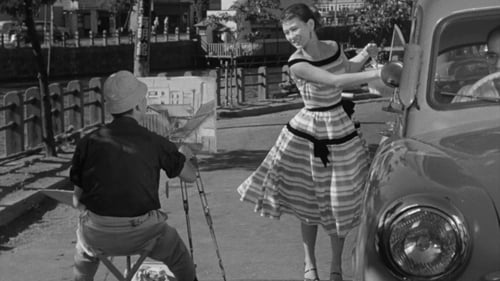
Assistant Director
Um jovem e talentoso artista pintou um retrato de Wakako Kyogoku enquanto ela ainda era criança, que foi guardado com muito carinho pela menina. Anos depois, ela leva o quadro para uma galeria de arte em Ginza na esperança de reencontrar seu criador, cuja identidade lhe é desconhecida.

First Assistant Director
Sonejiro dedica sua vida inteiramente à pesquisa. A jovem dona de casa Yachiyo está decepcionada com seu marido Kappei, que se sente mais atraído pela escalada e por outra mulher. A felicidade de todos entra em jogo quando o pai de Yachiyo é apresentado a Sonejiro.
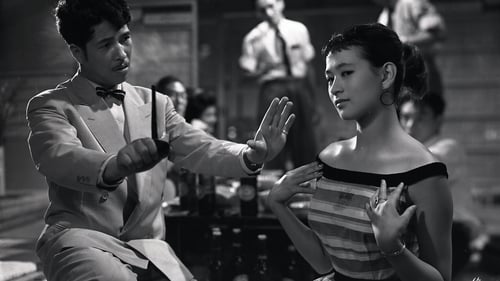
First Assistant Director
A Segunda Guerra Mundial está acabando e os baby boomers estão na flor da idade. O ministro Araki apresenta um projeto de lei para estabelecer Centros de Consulta de Controle de Natalidade em todo o Japão. Enquanto discursa na assembleia nacional, sua esposa fica sabendo que está grávida.

Assistant Director
Mokichi is the widowed father of three daughters, with whom he lives on the premises of a temple since the war. In the film all three daughters become involved in some sort of complicated relationships. The sisters and their attached Men are deliberately designed as allegorical figures on the changing social conditions. A wonderfully funny, sometimes droll comedy between Nara and Tokyo, Adagio and Allegro, Yesterday and Today - in search of a morning.
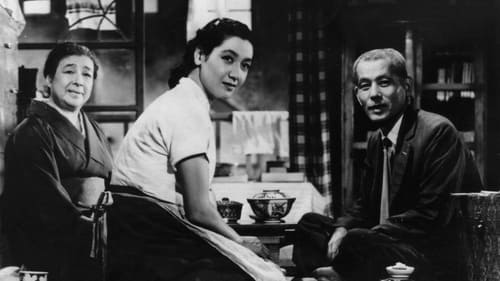
Second Assistant Director
Um casal de idosos deixa sua filha no campo para visitar os outros filhos em Tóquio, cidade que eles nunca tinham ido. Porém os filhos os recebem com indiferença, e estão sempre muito atarefados para terem tempo para os pais. Apenas a nora deles, que perdeu o marido na guerra, parece dar atenção aos dois. Quando a mãe fica doente, os filhos vão visitá-la junto com a nora, e complexos sentimentos são revelados.
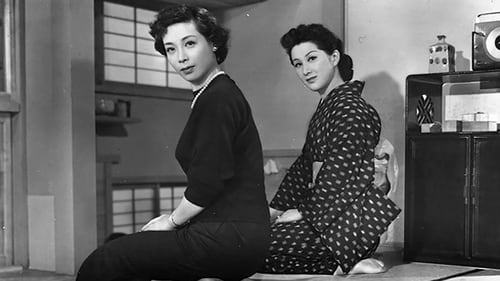
Assistant Director
Um casal de meia-idade sem filhos enfrenta uma crise conjugal.
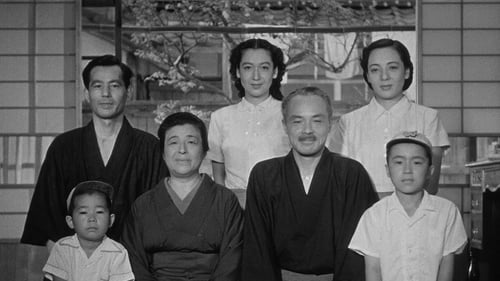
Assistant Director
Uma família escolhe um marido para a sua filha de 28 anos Noriko, mas ela surpreendentemente tem os seus próprios planos. Noriko mora em Tóquio no pós-guerra com sua extensa família. Embora ela esteja satisfeita com sua carreira e seus amigos, a sua mais tradicional família se preocupa com o fato de ela ainda estar solteira, aos 28 anos. Quando Takako, 40 anos, faz uma proposta de casamento, a família de Noriko a pressiona para aceitar. Mas quando seu amigo de infância Kenkichi, agora viúvo retorna ao bairro, ela percebe que seu coração a está levando em outra direção. (e Livre - Estimado Livre)

